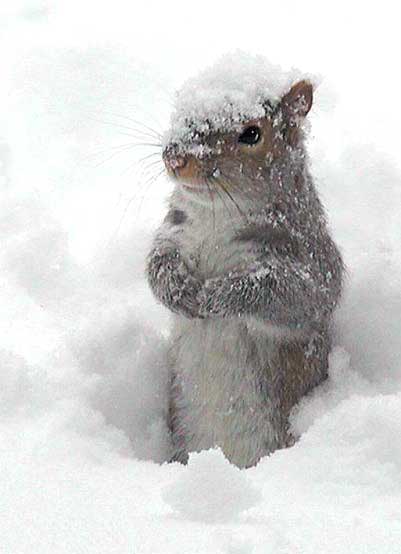The issue: School closings and snow days
The vocab: Snow days are usually perceived as fun and as a respite from the daily school grind - but for some kids who rely on the school's resources, snow days aren't so quaint
The Northeast has been battling record snowfall for the past two weeks - hundreds of flights were cancelled, car accidents abounded, and almost every school from Virginia to Maine was closed for days. (Well, except for Yale, which hasn't declared a snow day in more than 30 years.)

One thing a lot of us don't think about is the public health trade-off schools make when declaring snow days. School is usually cancelled in the name of student and staff safety - that is, fewer automobile/bus accidents and less exposure to dangerously low temperatures. But there are health risks associated with not being in school, too.
Besides the inconvenience to parents who have to find a last-second babysitter, and besides the inconvenience to teachers whose lesson plans are disrupted, there are negative effects that students must face if school is cancelled. As discussed in stories from both MSNBC and the Newark Advocate, many elementary, middle and high school students rely on free breakfast and free/reduced-price lunch - and their family may not be prepared to provide these meals when their children are unexpectedly home for a few extra meals.
Here in New Haven, most schools were closed at least two days these past couple of weeks. And most of the schools in town have about 60% of their students on the free and reduced-price lunch program. While schools often have a bad rep for the quality of their cafeteria lunch menus, this may actually be the most nutritious meal some kids get that day. In order for a school to participate in the program and receive subsidies from the Federal government, cafeteria food must meet certain nutritional guidelines - with limits on calories and fat, and requirements for vitamin content.
So what can families do when they unexpectedly have another mouth (or so) to feed? In Philadelphia and D.C., where schools were apparently only open one day all of last week, food pantries were either (1) closed due to the inclement weather or (2) running low on food because of the unusually high demand.
Some school administrators in Evansville, Indiana - a midwest town that's no stranger to frequent winter school closings - started a pilot program last week, where kids who were brave enough to trek to one of two local schools could still get a free lunch. (It's unclear whether they had to be eligible for the federal free/reduced-price lunch program, or if just anyone under 18 could roll in.) If a State of Emergency is declared in the city this back-up program would close as well. But when school is closed for several days straight, chances are the city won't be in a snow emergency the entire time - and due to the efforts of this school district kids will have at greater access to nutritious meals in otherwise tough times. And it does put kids at risk - if the weather's bad enough to close schools, it's probably at least mildly perilous to get to school to take advantage of the program. But at least it's a resource that families can use if food options are running low.

Snow days should be fun - it shouldn't be a stressful time where parents have to worry if they're going to be able to feed their kids. The government already has a free/reduced-price lunch program for eligible kids to use during the summer - they should maybe expand this they way schools in Evansville did, so on unexpected closures kids can have access to nutritious food ... and then go play in the snow like kids should be doing!
[And now for your non-public health side note ... while googling Connecticut cafeteria policy, I came across a story about a 55-year-old cafeteria worker in Danbury who got put in jail after getting in a food fight with a fifth-grader. God Bless Connecticut.]
No comments:
Post a Comment